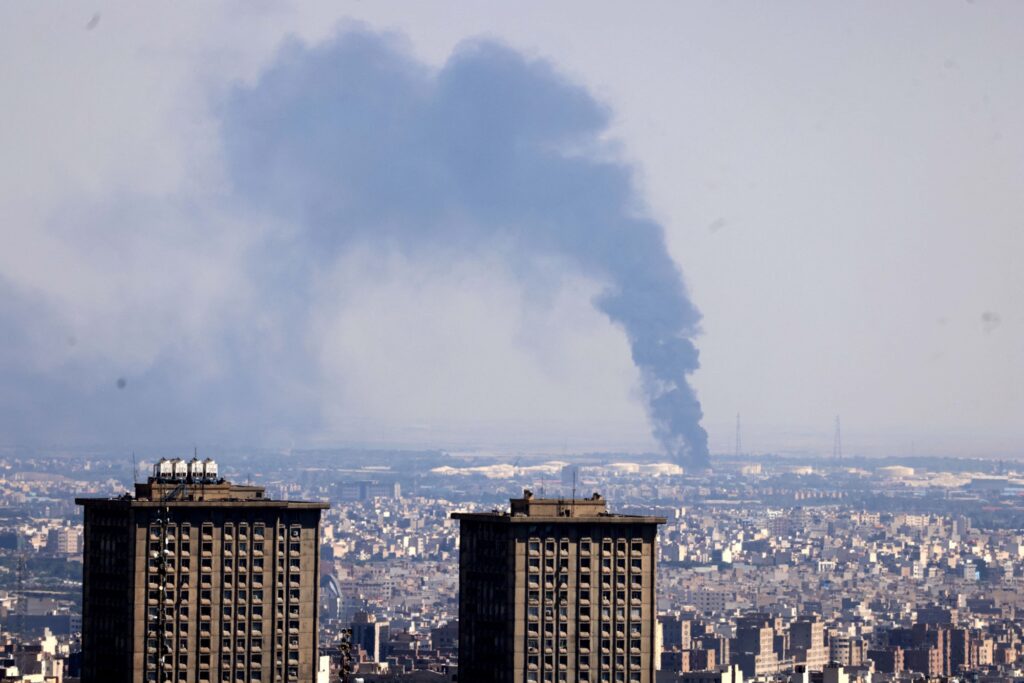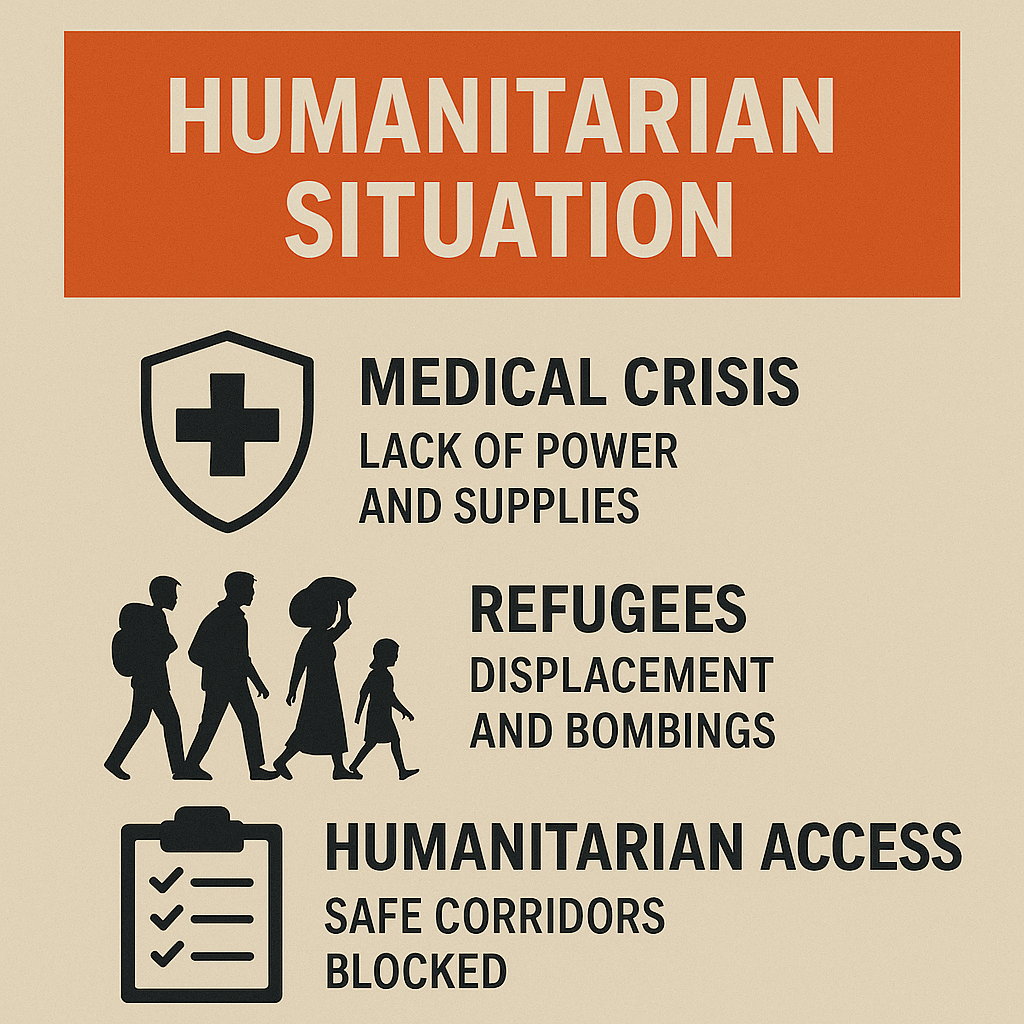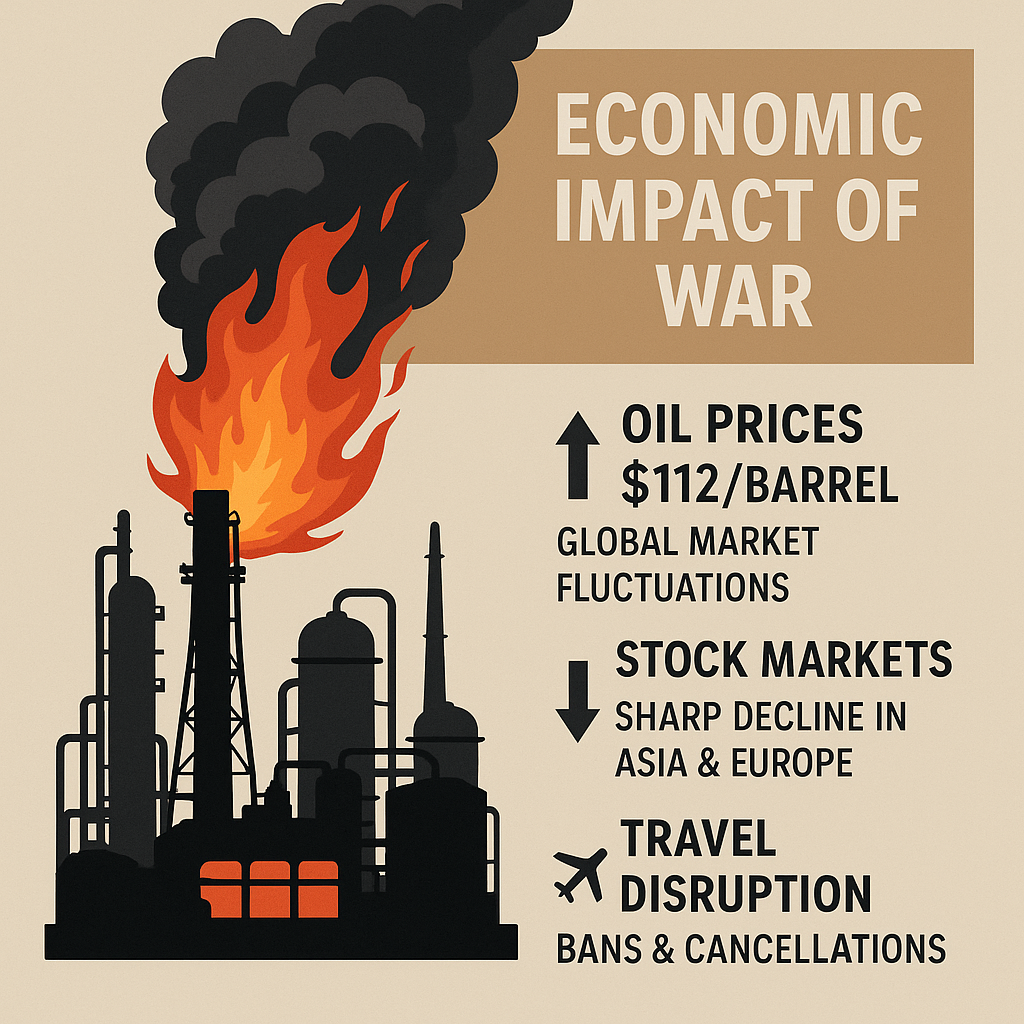Date: June 20, 2025
Author: Najeeb Ustad

Overview
The eighth day of the Iran-Israel conflict has seen escalating fighting, wider battlegrounds, and rising global alarm. After starting last week, the confrontation has now reached a crucial point, with serious military, civilian, and economic repercussions for both countries.
Key Events of Day 8:
1. Continued Airstrikes and Retaliation
• Overnight, Israel launched a series of airstrikes against military installations and suspected missile launch locations in western Iran, including the vicinity of Isfahan and Khuzestan.
• Iran’s Revolutionary Guard retaliated by firing more missiles in the direction of Haifa and Tel Aviv. Some caused damage in northern districts, but the majority were intercepted by Israel’s Iron Dome.
2. Casualty Update
• More than 100 persons, including both military personnel and civilians, are said to have perished in the last 24 hours.
• Humanitarian groups are concerned about the escalating refugee problem, particularly in the Syrian and Lebanon border areas where thousands of people are escaping.
3. The Intensification of Drone Warfare
• According to reports, Iran has sent sophisticated drones into southern Israel, and Israel destroyed a significant Iranian supply base close to the Iraqi border using kamikaze drones.
4. Cyber War Front Opens
• Cyberattacks were traded between the two countries. Israeli news outlets reported brief outages on government websites and transportation infrastructure, while Iran claimed its oil export systems were temporarily interrupted.
Emergency Meeting of the United Nations Due to the exercise of veto powers by rival international allies, the UN Security Council was unable to enact a ceasefire resolution despite holding an urgent meeting behind closed doors. • Russia and the US • While calling for de-escalation, the US reiterated its backing for Israel. • Russia, which is close to Iran, threatened “severe consequences” if Israel persisted in pursuing Iranian assets. • China, India, and the EU • India encouraged communication between the two parties. China volunteered to facilitate peace negotiations. • Due to attacks that injured civilians, the EU partially sanctioned both nations.
International Reactions
Emergency Meeting of the United Nations Due to the exercise of veto powers by rival international allies, the UN Security Council was unable to enact a ceasefire resolution despite holding an urgent meeting behind closed doors.
• Russia and the US
• While calling for de-escalation, the US reiterated its backing for Israel.
• Russia, which is close to Iran, threatened “severe consequences” if Israel persisted in pursuing Iranian assets.
• China, India, and the EU
• India encouraged communication between the two parties. China volunteered to facilitate peace negotiations.
• Due to attacks that injured civilians, the EU partially sanctioned both nations.
Humanitarian Situation

• A medical crisis brought on by a shortage of electricity, medications, and blood units in Iranian border cities.
• Civilians in Gaza and Lebanon are subject to bombings and displacement as a result of Hezbollah’s role in the escalating tensions.
• NGOs are demanding access to humanitarian aid and safe corridors, which are presently being obstructed by air raids.
Economic Impact

•Global market volatility resulted from the spike in oil prices to $112/barrel.
• Today, Asian and European stock exchanges opened lower.
• Flight cancellations and travel restrictions to and from both nations are growing.
Conclusion
The conflict between Israel and Iran has now escalated into a regional catastrophe with worldwide repercussions. The way forward necessitates both diplomatic urgency and military strength. Before more countries and innocent lives are lost in this conflict, the world needs to take action.
